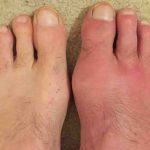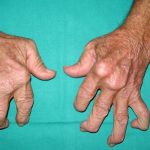Gastrointestinal Problems

Those with Lupus often have gastrointestinal trouble and discomfort, including issues like heartburn and acid reflux before and after meals. These symptoms are less of a burden, because they can be treated with antacids and other preventative measures, like reduced meal sizes and eating more frequently or avoiding caffeine.
Lupus may cause inflammation of the esophagus too. Many patients will develop gastroesophageal reflux disease (GERD). GERD is caused by hiatal hernias from a weak sphincter, or the muscle that separates the esophagus from the stomach, or by weak muscle contractions during peristalsis. Due to GERD, dysphagia, or a weakness when swallowing, may also develop.
However, because Lupus is an autoimmune disease, it will also worsen the symptoms of other GI tract issues, including pancreatitis and ulcerative colitis. Both conditions cause a tremendous amount of abdominal pain, bloating, nausea, and sometimes, vomiting.
More from Things Health
-
Signs, Symptoms and Risk Factors of Lupus
Lupus, an autoimmune disorder, is a chronic condition (which means that it lasts for years) that affects approximately 1.5 million Americans. Lupus is one disease…
-
Symptoms of Gout
Gout is a form of inflammatory arthritis characterized by recurrent attacks of a red, tender, hot, and swollen joint. Pain typically comes on rapidly in…
-
Symptoms Of Epilepsy
Epilepsy a neurological disorder marked by sudden recurrent episodes of sensory disturbance, loss of consciousness, or convulsions, associated with abnormal electrical activity in the brain.…
-
Symptoms Of Rheumatoid Arthritis
Rheumatoid arthritis is a chronic autoimmune illness, which accompanies irritation of the joints and apparent deformities. Maybe a virus, causes an attack on the synovium…
-
Symptoms Of An Ulcer
A peptic ulcer is an open sore in the top digestion tract. Both primary kinds of peptic ulcers, a gastric ulcer, which forms in the…






